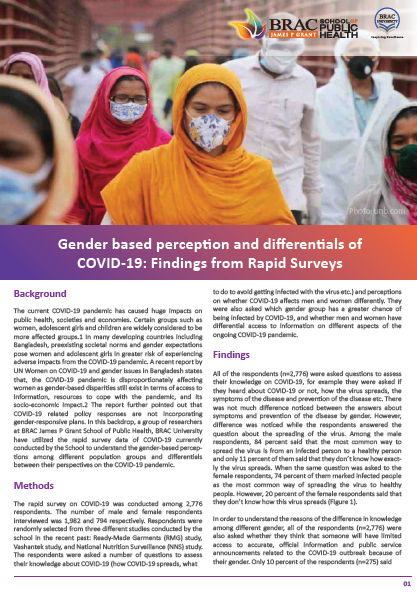The current COVID-19 pandemic has caused huge impacts on public health, societies and economies. Certain groups such as women, adolescent girls and children are widely considered to be more affected groups. In many developing countries including Bangladesh, pre-existing societal norms and gender expectations pose women and adolescent girls in greater risk of experiencing adverse impacts from the COVID-19 pandemic. A recent report by UN Women on COVID-19 and gender issues in Bangladesh states that, the COVID-19 pandemic is disproportionately affecting women as gender-based disparities still exist in terms of access to information, resources to cope with the pandemic, and its socio-economic impact. The report further pointed out that COVID-19 related policy responses are not incorporating gender-responsive plans. In this backdrop, a group of researchers at BRAC James P Grant School of Public Health, BRAC University have utilized the rapid survey data of COVID-19 currently conducted by the School to understand the gender-based perceptions among different population groups and differentials between their perspectives on the COVID-19 pandemic.
Md Tanvir Hasan, Md Uzzal Chowdhury, Amina Amin, Sabina Faiz Rashid and Atonu Rabbani (2020) Gender based perception and differentials of COVID-19: Findings from Rapid Surveys, Rapid Research Brief, JPG School of Public Health, BRAC University






